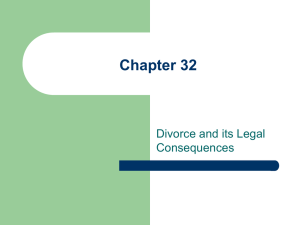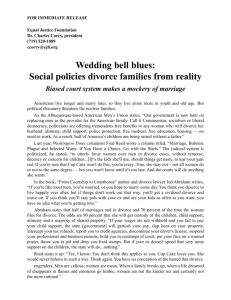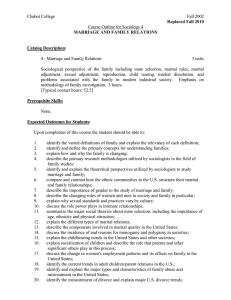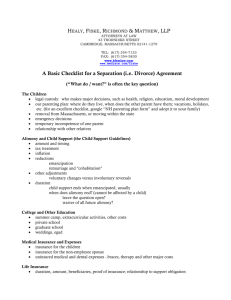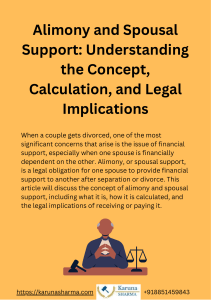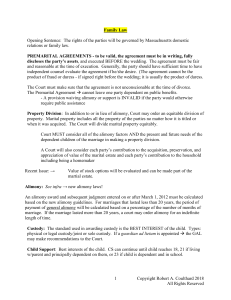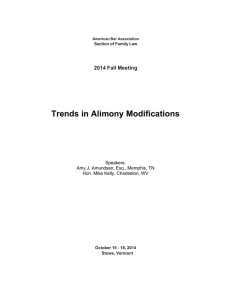Alimony - Spousal Support
advertisement
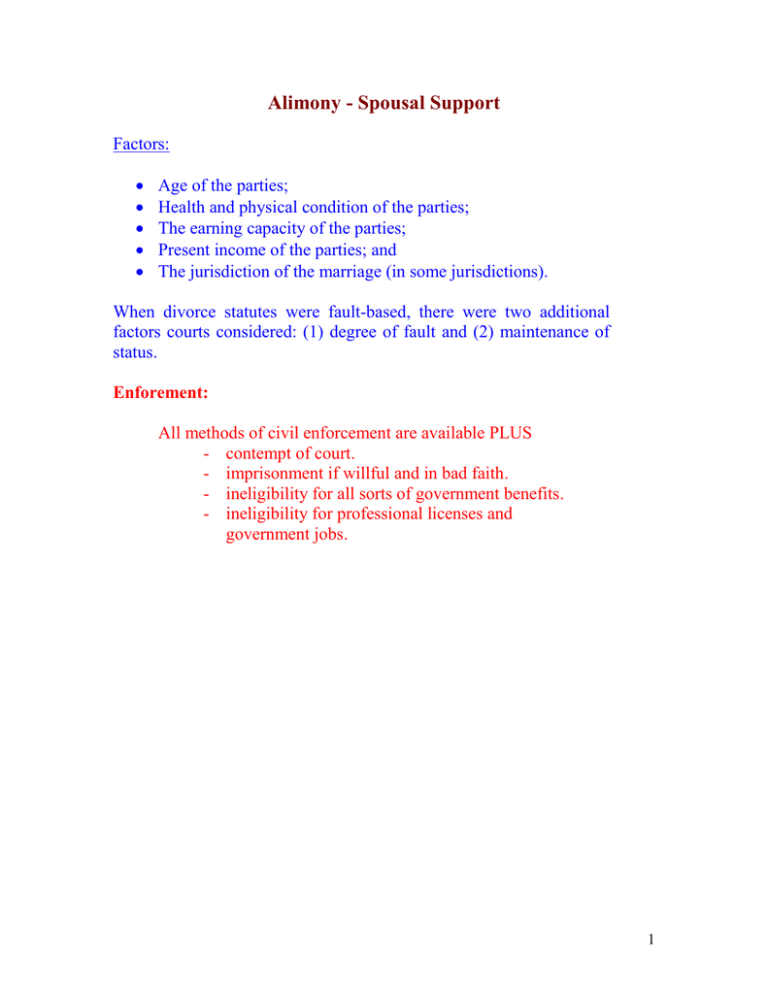
Alimony - Spousal Support Factors: Age of the parties; Health and physical condition of the parties; The earning capacity of the parties; Present income of the parties; and The jurisdiction of the marriage (in some jurisdictions). When divorce statutes were fault-based, there were two additional factors courts considered: (1) degree of fault and (2) maintenance of status. Enforement: All methods of civil enforcement are available PLUS - contempt of court. - imprisonment if willful and in bad faith. - ineligibility for all sorts of government benefits. - ineligibility for professional licenses and government jobs. 1 Types of Alimony Permanent Alimony - Despite the name, this is usually awarded only for a set period of time. Temporary Alimony - Awarded temporarily during the divorce proceeding to tide the spouse over until permanent alimoy can be awarded. Rehabilitative Alimony - A form of alimony awarded to allow a spouse to get education or training to allow him/her to become selfsufficient. “Palimony”? 2 Financial Aspects of Divorce Property Division => community property laws Separate property => acquired before/after marriage, gift, inheritance. Community (marital) property => acquired during the marriage; each own 50/50 regardless of who provided the money or whose name assets in. Community Property States => [Nine states have community property laws] Arizona, California, Idaho, Louisiana, Nevada, New Mexico, Texas, Washington, and Wisconsin. In addition, Puerto Rico is a community property jurisdiction. Property Division => equitable distribution Separate property => acquired before marriage, gift, inheritance—returned to owner Equitable distribution marital property => based on factors o Age o Length of the marriage o Occupation and income o Needs and contributions of the party in acquiring property o Alimony awarded 3 Intangible Property The principal areas of intangible property are: professional degrees and licenses; goodwill of a business; and pension rights. Professional degrees: Majority view => should not be considered marital property and therefore not subject to equitable distribution. Minority view (e.g., New York) => New York Court of Appeals classified a professional license (i.e. increased future earning potential) as marital property in 1985. UMDA => a professional degree is not property and therefore not subject to equitable distribution upon divorce. “Profession goodwill” => the enhanced earning capacity that comes from a professional’s reputation, and client or customer list. Pension rights: marital property that can be divided. Qualified domestic relations order (“QDRO”): document needed to distribute pension benefits until the beneficiary spouse actually begins receiving benefits (deferred distribution) vs. immediate distribution. 4

